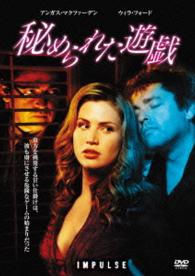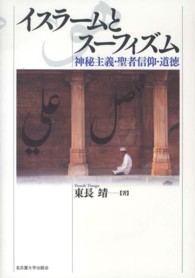Full Description
This handbook serves as a comprehensive resource on English language education in the Philippines, addressing a wide range of issues including ideologies, multilingualism, identities, policies, methodologies, assessment, teacher education, and curriculum.
Chapters cover a range of educational contexts—from Luzon to Mindanao islands, from basic to higher education, and from formal to non-formal schooling. This book upholds the think and do otherwise perspective by problematizing contemporary paradigms and practices that operate from naturalized ideas inherited from the American colonizers. This includes repairing pedagogies that redress injustices experienced by historically marginalized groups and hoping for possibilities and approaches to teaching and learning English that are just, equitable, and inclusive. The six sections in the Handbook bring up conditions for thinking and doing otherwise, pointing to ways in which genuine changes can start to happen. Scholars from diverse backgrounds come together in this handbook to take collective ownership of English language education in the Philippines. This ownership does not mean ignoring and disposing of the country's colonial past but reclaiming English language education as an ongoing project instead. This handbook likewise demonstrates that such a project makes it possible for wider audiences to see that Global South scholars from and in the Philippines also have much to teach the rest of the world about thinking and doing otherwise and, by extension, problematizing, repairing, and hoping.
Given its scope and breadth, the handbook is an invaluable reference for students, pre-service and in-service teachers, teacher educators, researchers, and policymakers interested in English language, language education, TESOL, sociolinguistics, and applied linguistics.
Contents
CONTENTS
Lists of figures
List of tables
List of contributors
Prologue: the journey of English language education in multilingual Philippines
Isabel Pefianco Martin
1 Introduction: thinking and doing otherwise
Julius C. Martinez
PART I
Coming to grips with English and multilingualism
2 Punctuated Dominance: MTB-MLE and the Temporary Displacement of English in
Philippine Education
Jose Abelardo Torio and Anne Lan K. Candelaria
3 MTB-MLE Policy Enactments and the English-Speaking People in the Cordillera: An
Historico-Ethnographic Analysis
Maria Mercedes E. Arzadon and Eufracio C. Abaya
4 English Proficiency versus Ethnolinguistic Identity: MTB-MLE in Mindanao
Nelia G. Balgoa
5 Cultural Models, English and Local Languages in Southern Philippines
Abdul-Baqui A. Berik
PART II
Traversing the political economy of English language teaching
6 Entanglements of Post-colonial, Racial and (Non-)Native-Speaker Logics: Non-Native
Bifurcation and the 'Dual' Filipino Listening Subject
Rowland Anthony Imperial
7 Emotional Geographies of Koreans Studying English
Kyung Min Bae
8 Desires for English and Emotions as a Decolonial Option
Julius C. Martinez
9 The Unfreedom of Philippine English and English Language Education from Global
Neoliberal Capitalism
Rendell M. Sanchez
PART III
Grasping the marginalized and vulnerable
10 Identity and Investment in English Language Learning: A Case Study of an Internally Displaced Multilingual Student
Maria Clara P. Palisuc
11 Muted Identities: Non-Dominant Language Speakers' Investments on Monolingual and "Native Speaker" English
Grace Anne N. Tadaya
12 Androcentrism in Learning Modules and English Language Education in the Philippines: Rethinking Texts and Teachers' Perceptions and Practices
Christian Go and Jonna Marie Lim
13 Teaching and Learning Print English among the Filipino Deaf
May T. Cabutihan and Marie Therese Angeline P. Bustos
PART IV
Confronting oppressive language ideologies
14 Parents as English Language 'Police': Investigating Family Language Policy in the Philippines
Susan Mila P. Alvarez-Tosalem, Maria Rita Geezel T. Basmayor, Julius C. Martinez, Elaine L. Monserate, and Ersweetcel C. Servano
15 Innovations of Defiance Against Native-Speakerism in Oral Communication Courses
Myrel M. Santiago
16 Teacher Ideologies in Isabel Pefianco Martin's How, How the Carabao: Tales of Teaching English in the Philippines
Grace M. Saqueton
17 Language Teacher Identity (Trans)Formation in a Community of Practice: The Case of Pre-Service English Teachers in a Multilingual Context
John Paul C. Vallente
18 The School as a Site of Conflicting Language Ideologies: A Linguistic Schoolscape Perspective
Susan F. Astillero
19 Challenging the Monolingual Paradigm: English Language Assessment Practices in Philippine Private Schools
Dan Henry Gonzales
PART V
Reclaiming linguistic diversity
20 Students as Co-creators of Course Design: A Global Englishes Perspective
Alejandro S. Bernardo
21 Facilitating Students' Ownership of Englishes: A Critical Look at Past and Present Pedagogical Practices of Filipino Teachers
Maria Luz Elena N. Canilao
22 Perspectives, Practices, and Issues in Teaching Multiliteracies in the Philippines
Joel C. Meniado
23 Multimodal Creations - The Influence of Semiotic Resources on Students' Writing
Ramil Jhon P. Magno
24 Translanguaging and Teacher Perceptions: Possibilities for the Future of English Literacy Instruction
Michelle G. Paterno
PART VI
Intervening through criticality
25 From Critical Reflection to Theorizing Pedagogy: Understanding Pre-Service English Teachers' Sensemaking
Maria Teresa L. Manicio
26 Critical Consciousness in English Subjects and the Imperative for Transformative Intellectuals in Mindanao Schools
Kloyde A. Caday
27 Contextualizing in English Language Education: Insights from Teaching in a Time of Crisis
Marianne Rachel G. Perfecto
28 Reframing Digital Literacy: Criticality and the English Language Teaching in the Philippines
Gina Ugalingan and Paolo Niño Valdez
29 Un-making the Filipino Literate in English: Criticality in Self-Learning Modules in Philippine Public Schools
Gladys S. Matias
Afterword
Ruanni Tupas
Index







